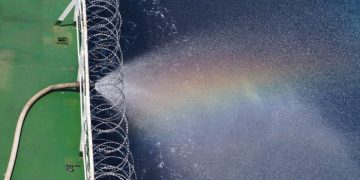Gasum teamed up with ship design company Deltamarin and Wärtsilä, a leader in maritime technologies, for cleaner maritime transport, following the global sustainability goals for a greener shipping.
The global sustainability goals call the shipping industry to reduce sulphur emissions, according to the 2020 sulphur cap regulation issued by the International Maritime Organization (IMO), which came into force in January 1, 2020.
In addition, the IMO ambitious GHG strategy calls for massive emission reductions by 2050. At the same time, the pace of digitalization is accelerating.
Therefore, the three partners collaborated to show how they can help shipowners meet challenges, seize opportunities and contribute to saving the environment, all while keeping business profitable:
- Deltamarin offers future-proof design with high cargo capacity and low-energy consumption
- Wärtsilä delivers next generation propulsion machinery solutions with future fuel flexibility
- Gasum enables the transition to cleaner energy
Gasum is already supplying a wide range of ship operators with liquefied natural gas (LNG) that contribute to reducing greenhouse gas emissions. Choosing LNG is a decision for shipowners as well as the operators of a vessel.
It is supported that LNG is the most environmentally friendly shipping fuel available and meets the requirements set by the Sulphur Directive for shipping as well as the stricter future limits set for emissions such as NOx, particulates and CO2. Read more about LNG as a maritime fuel.




























































